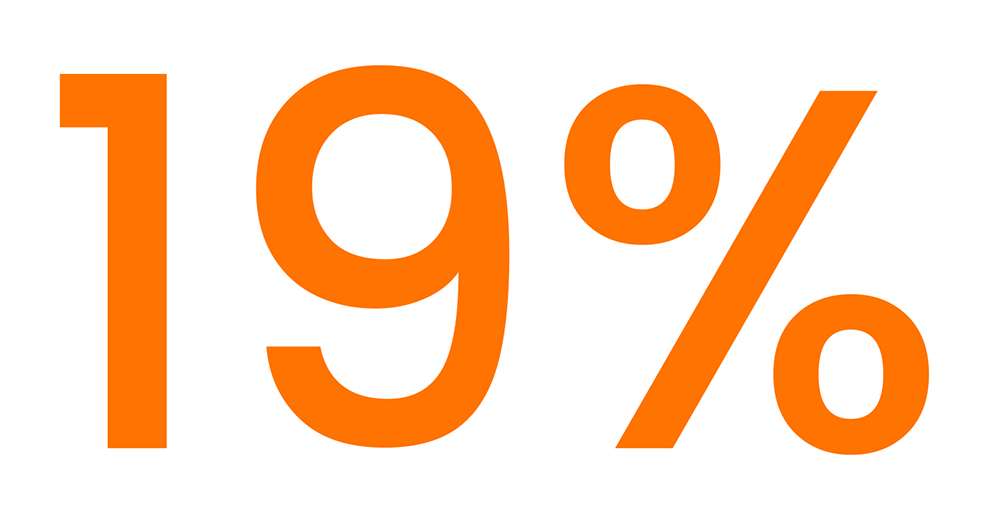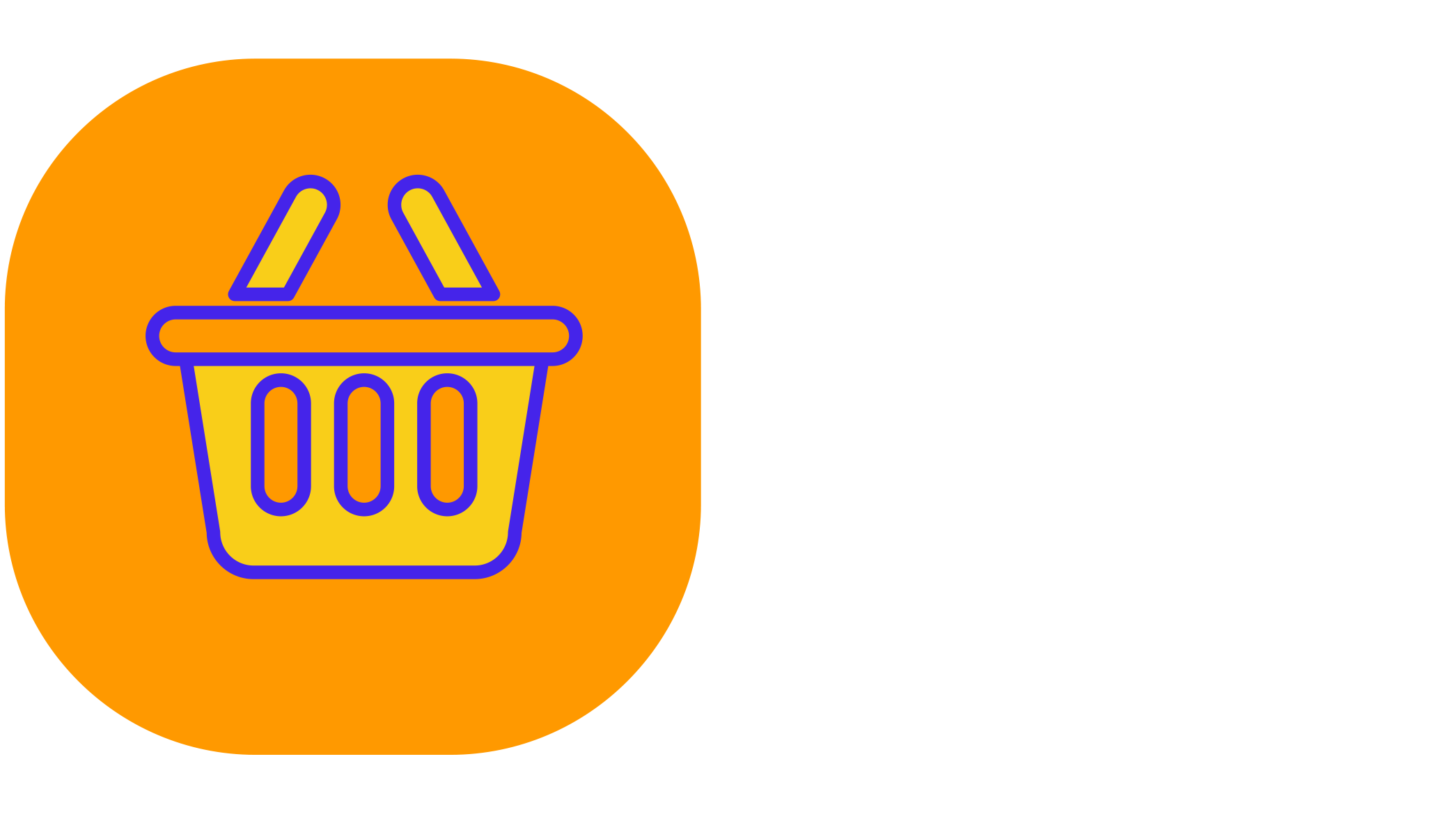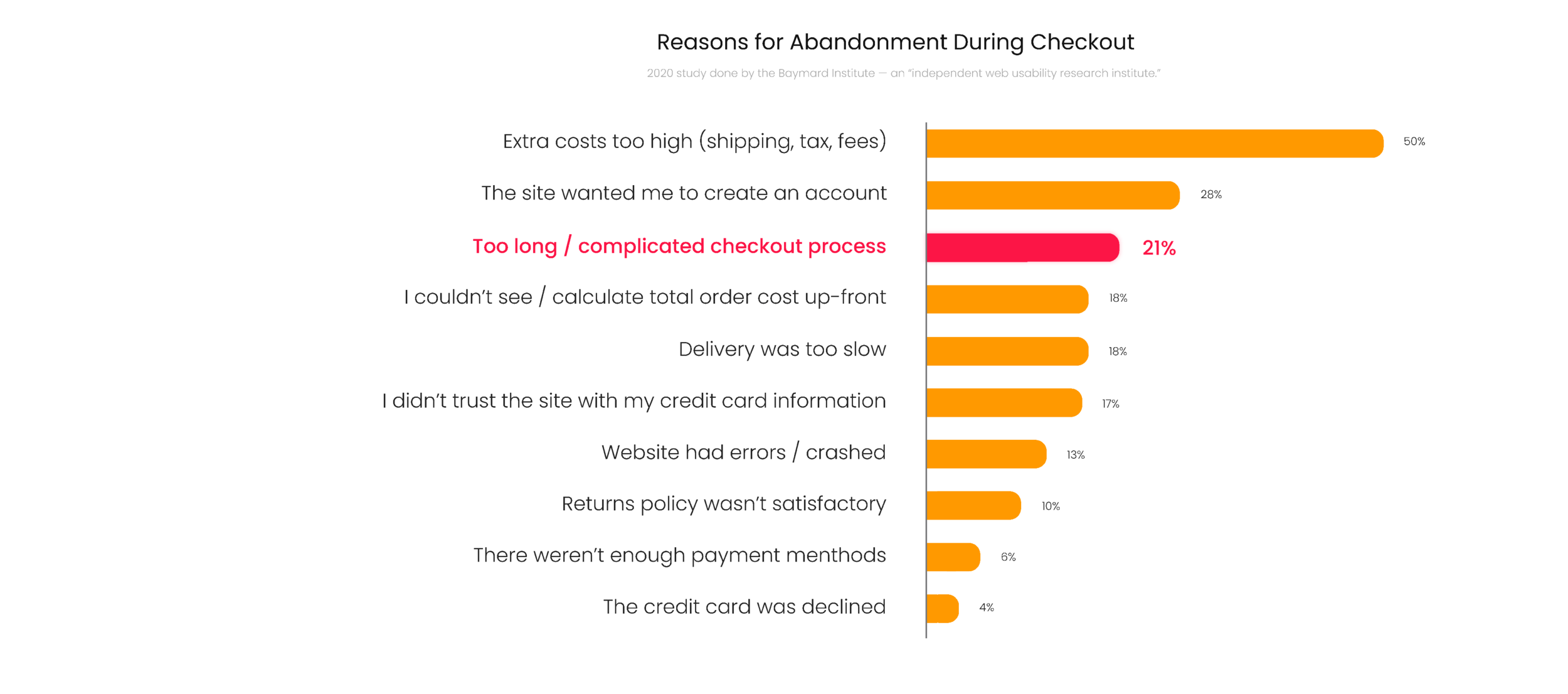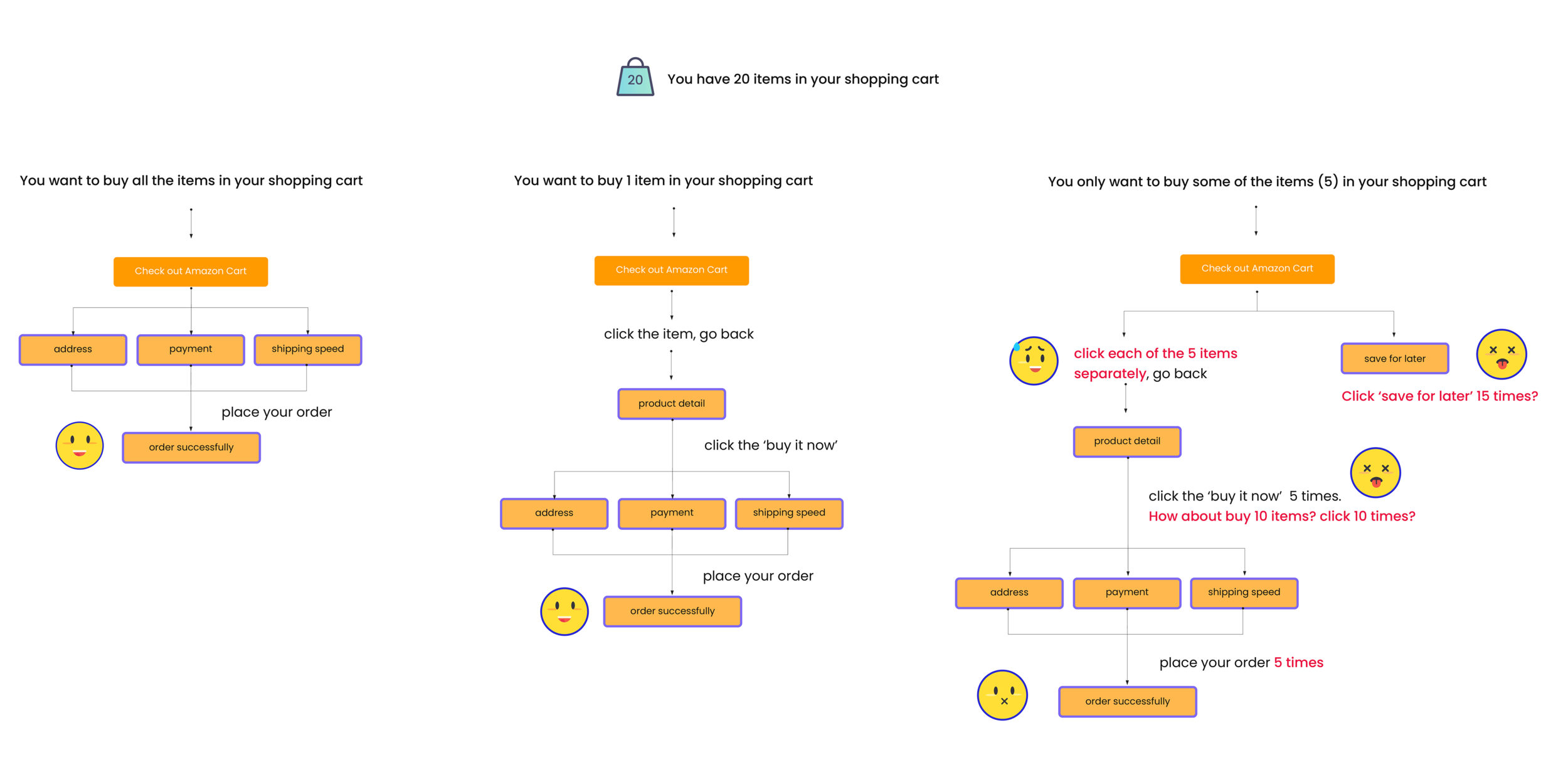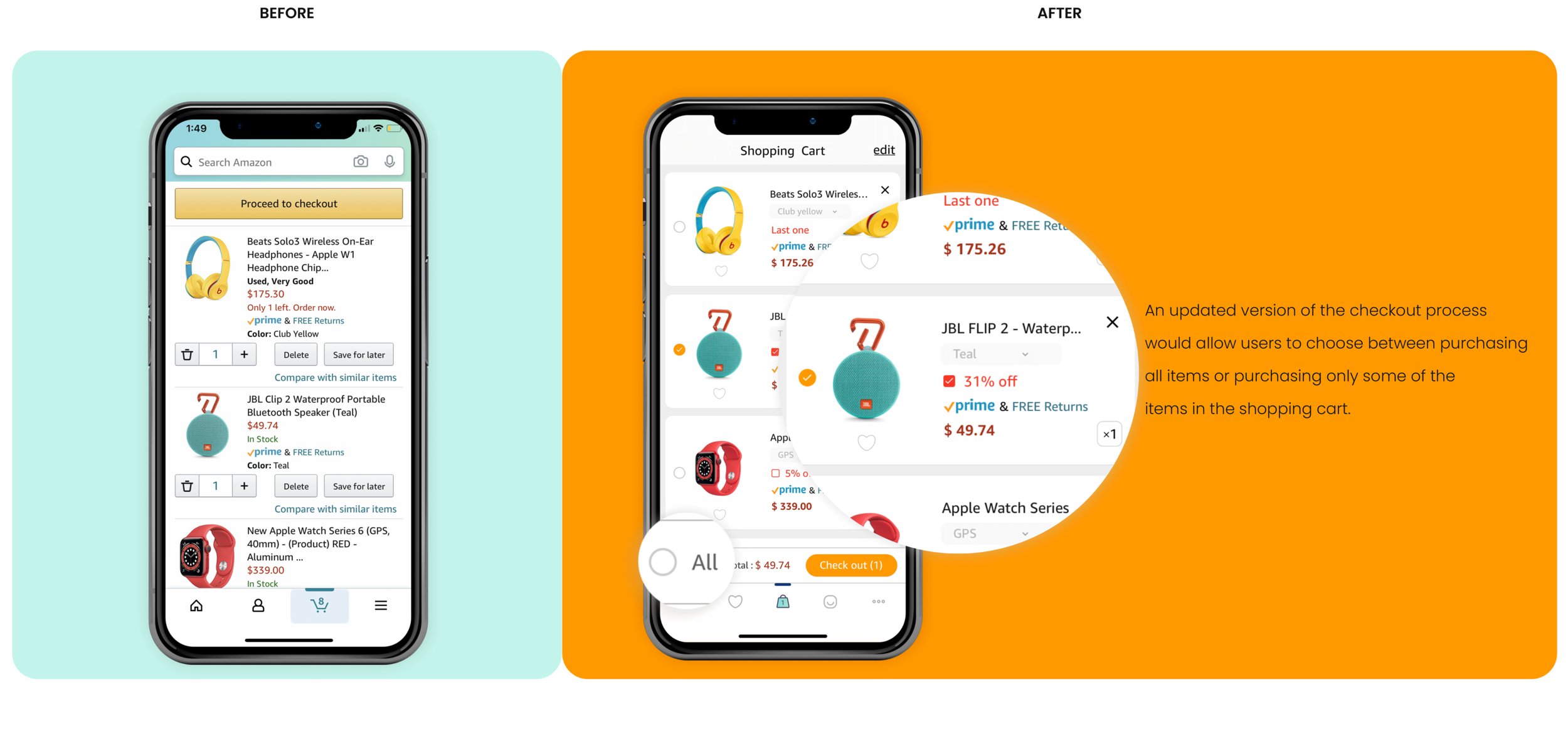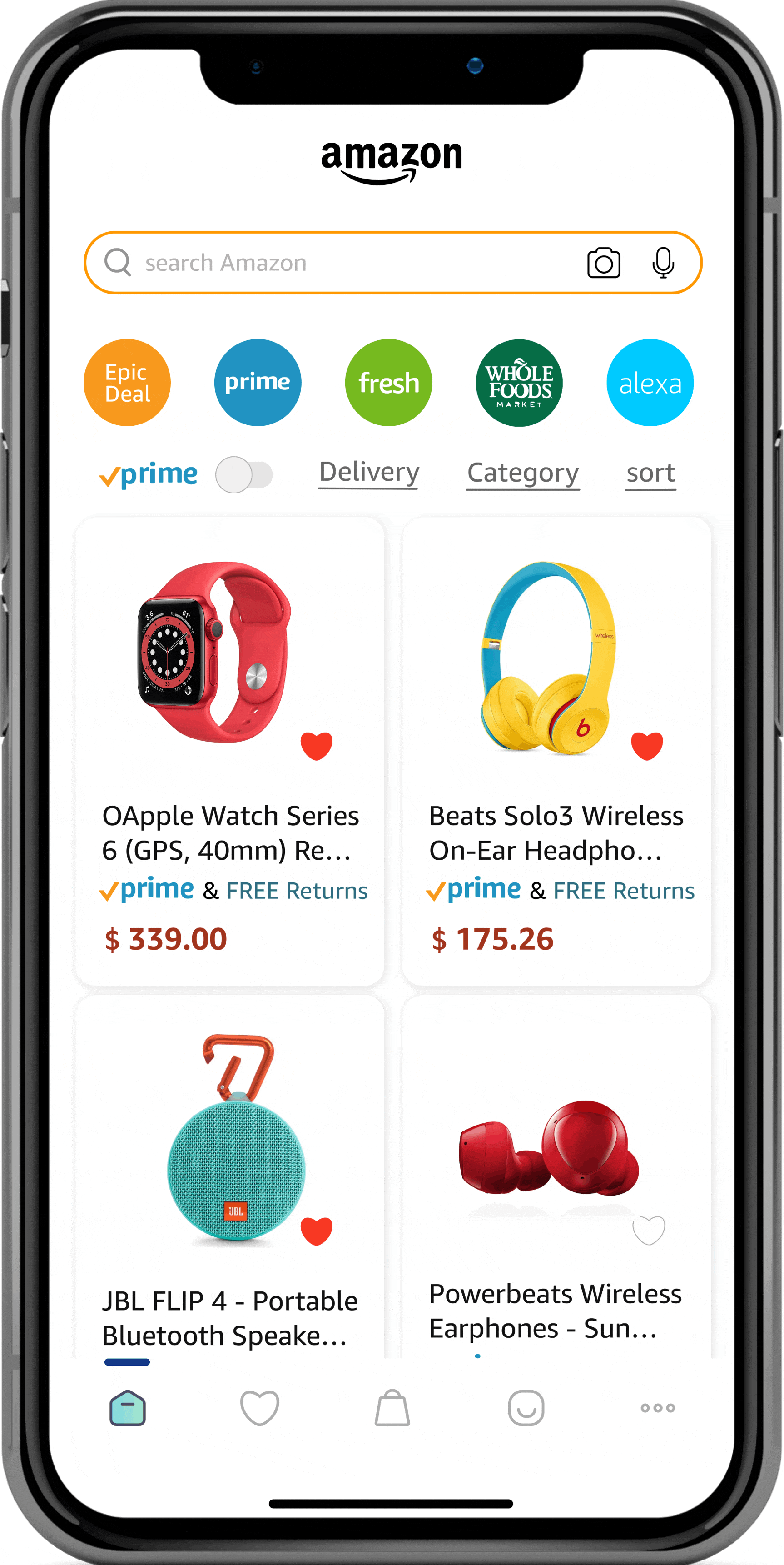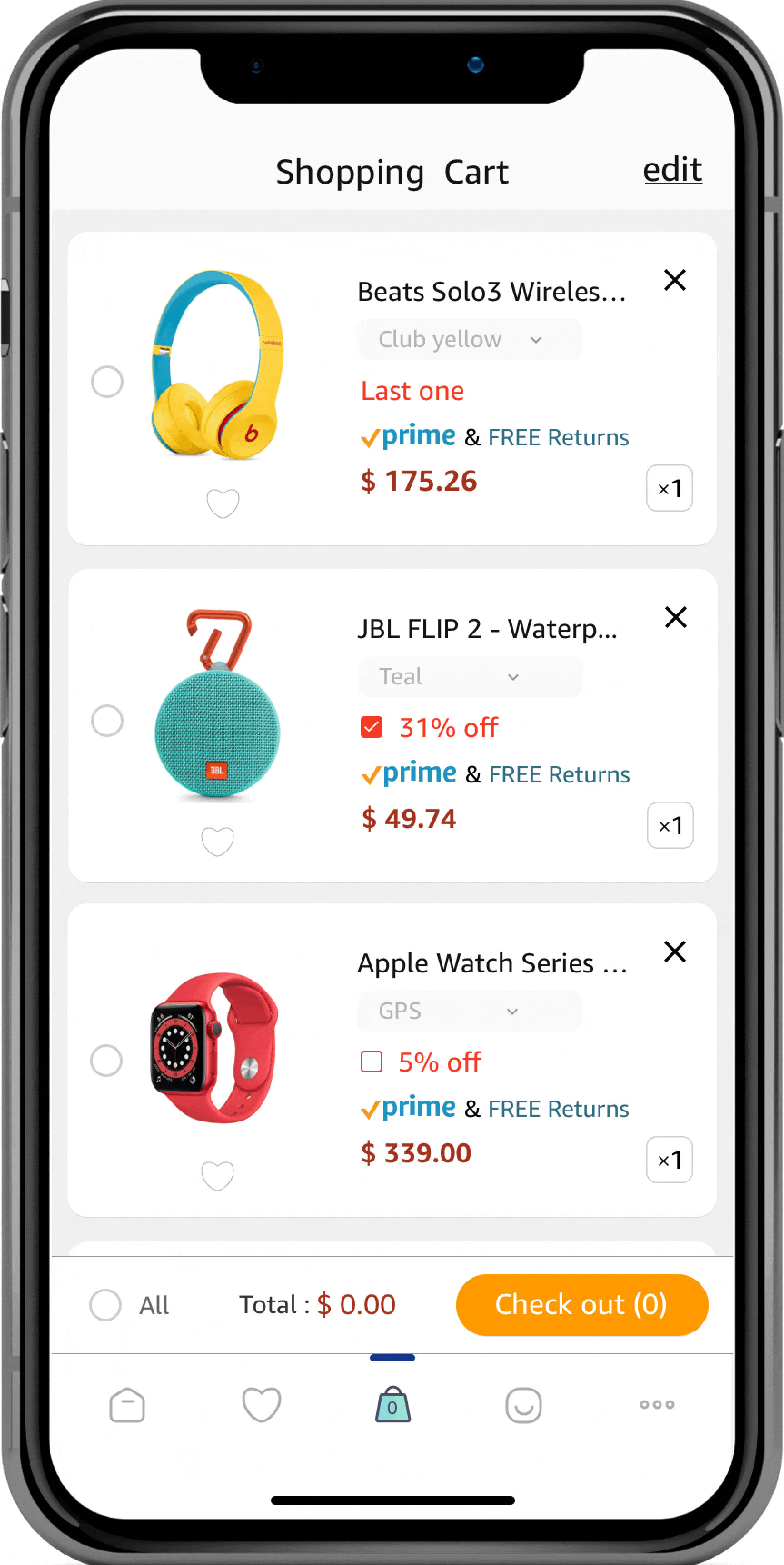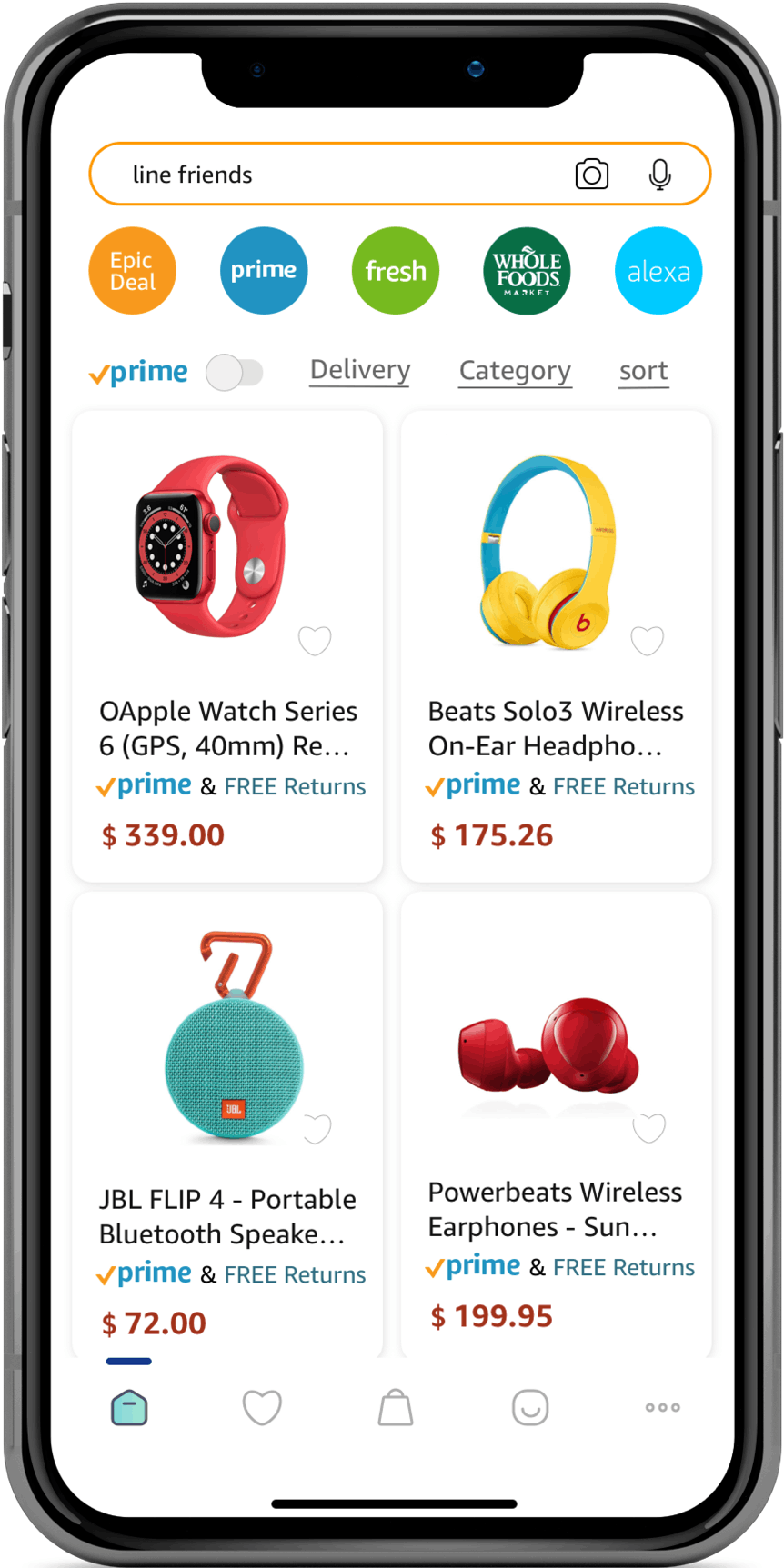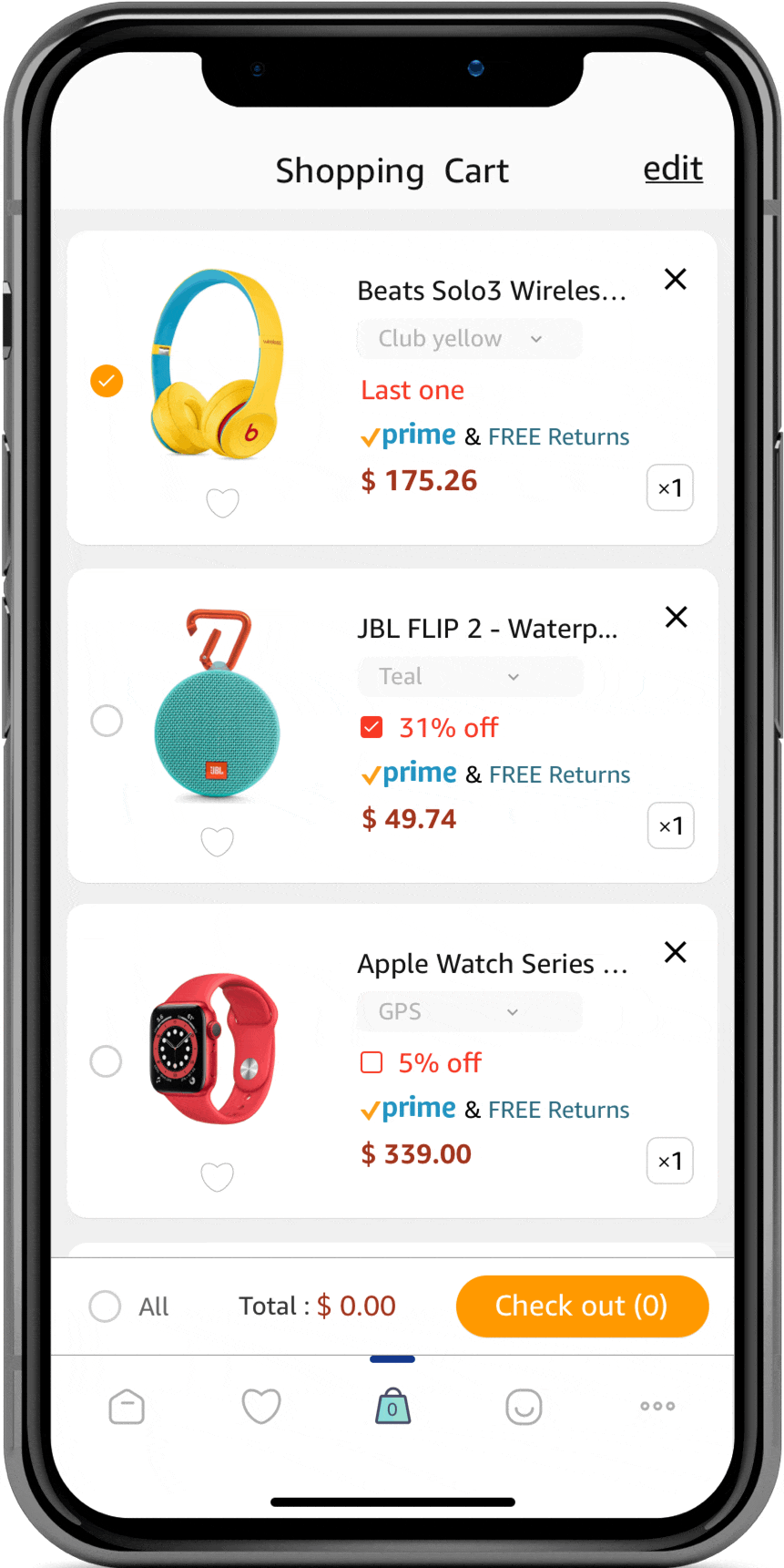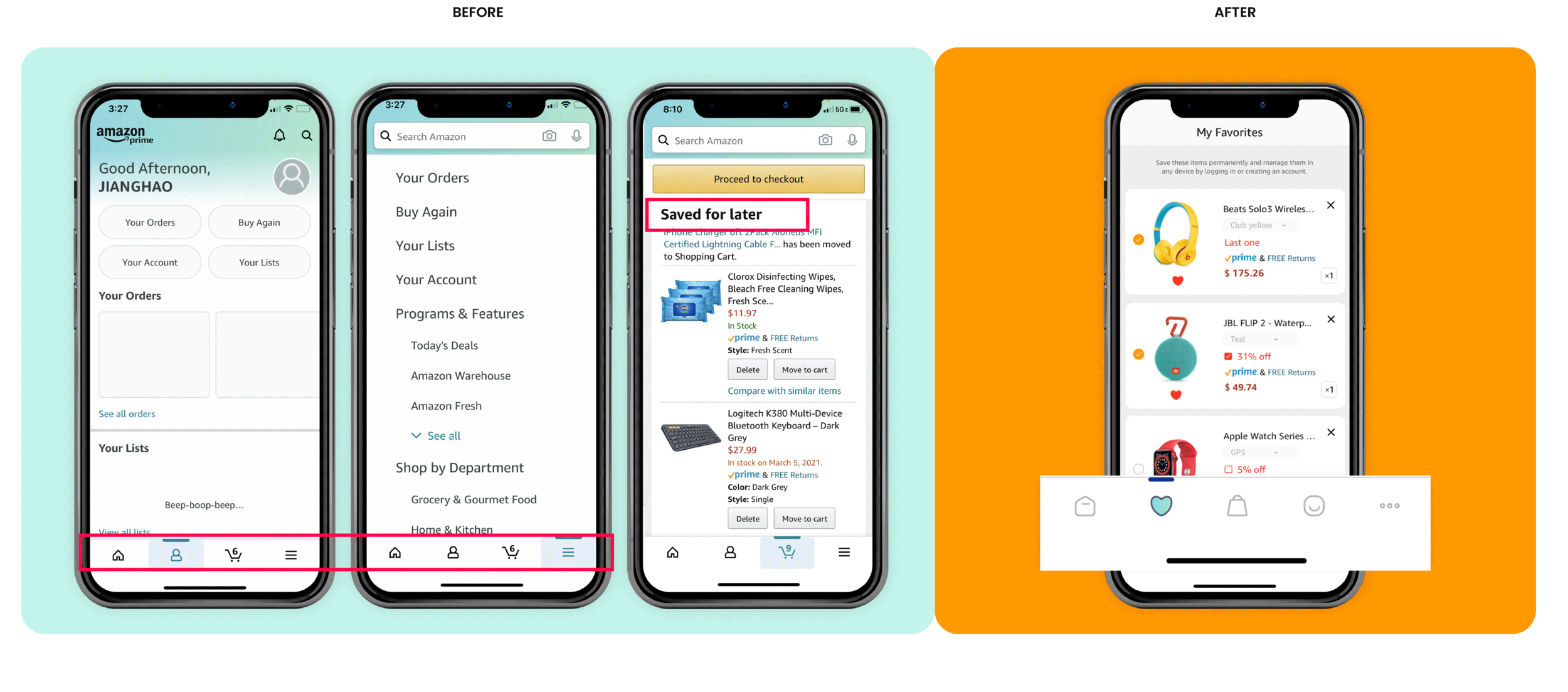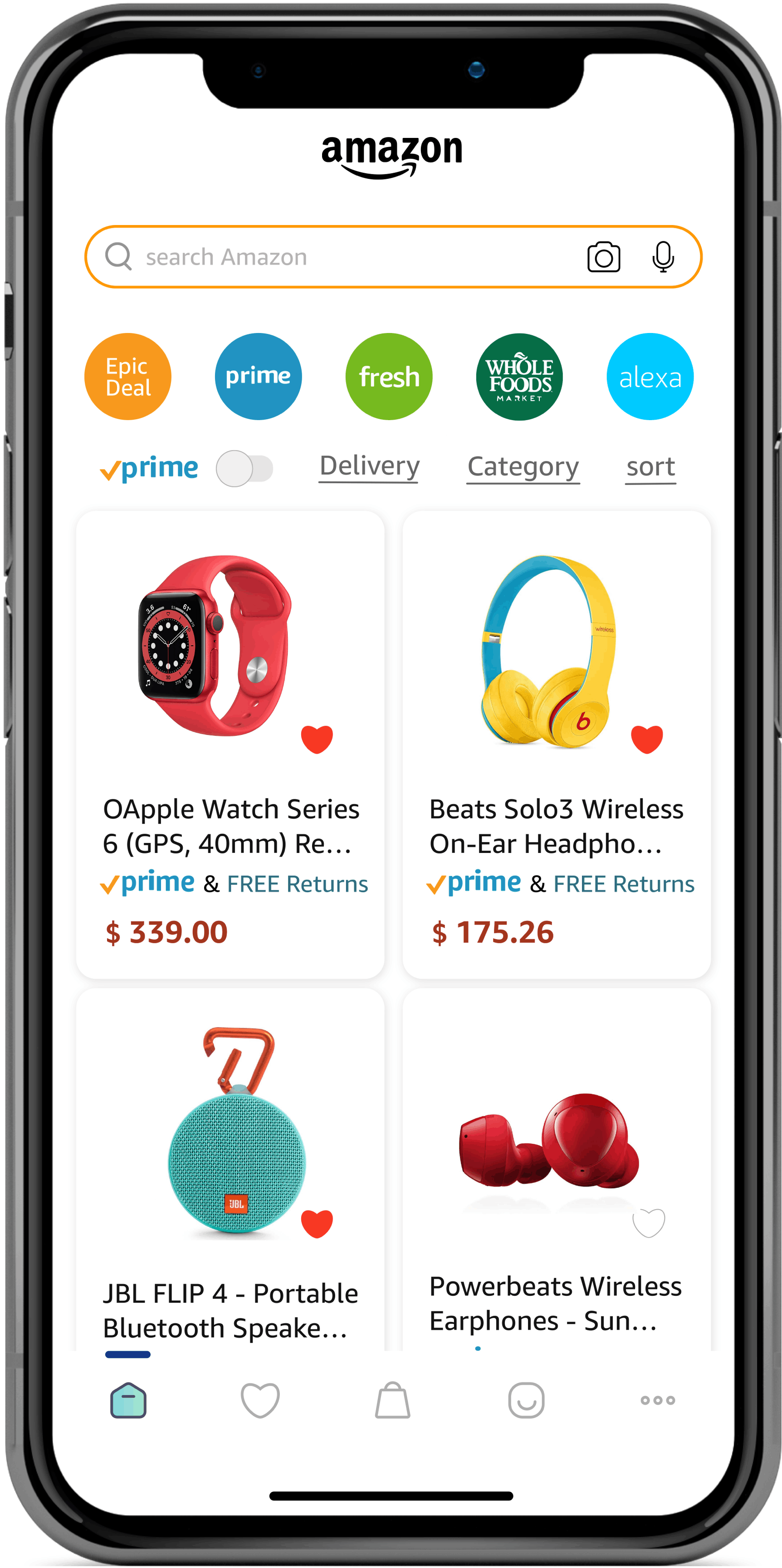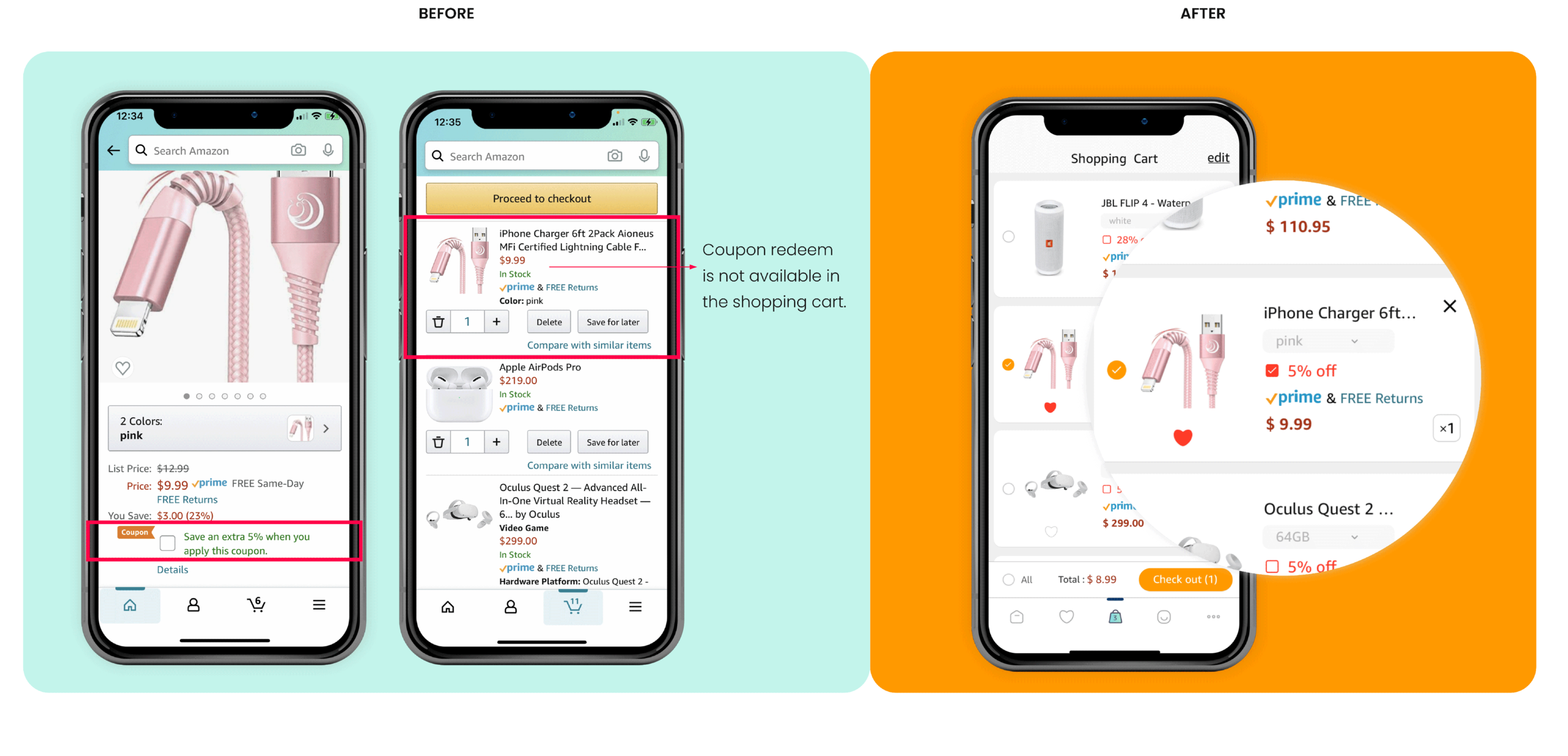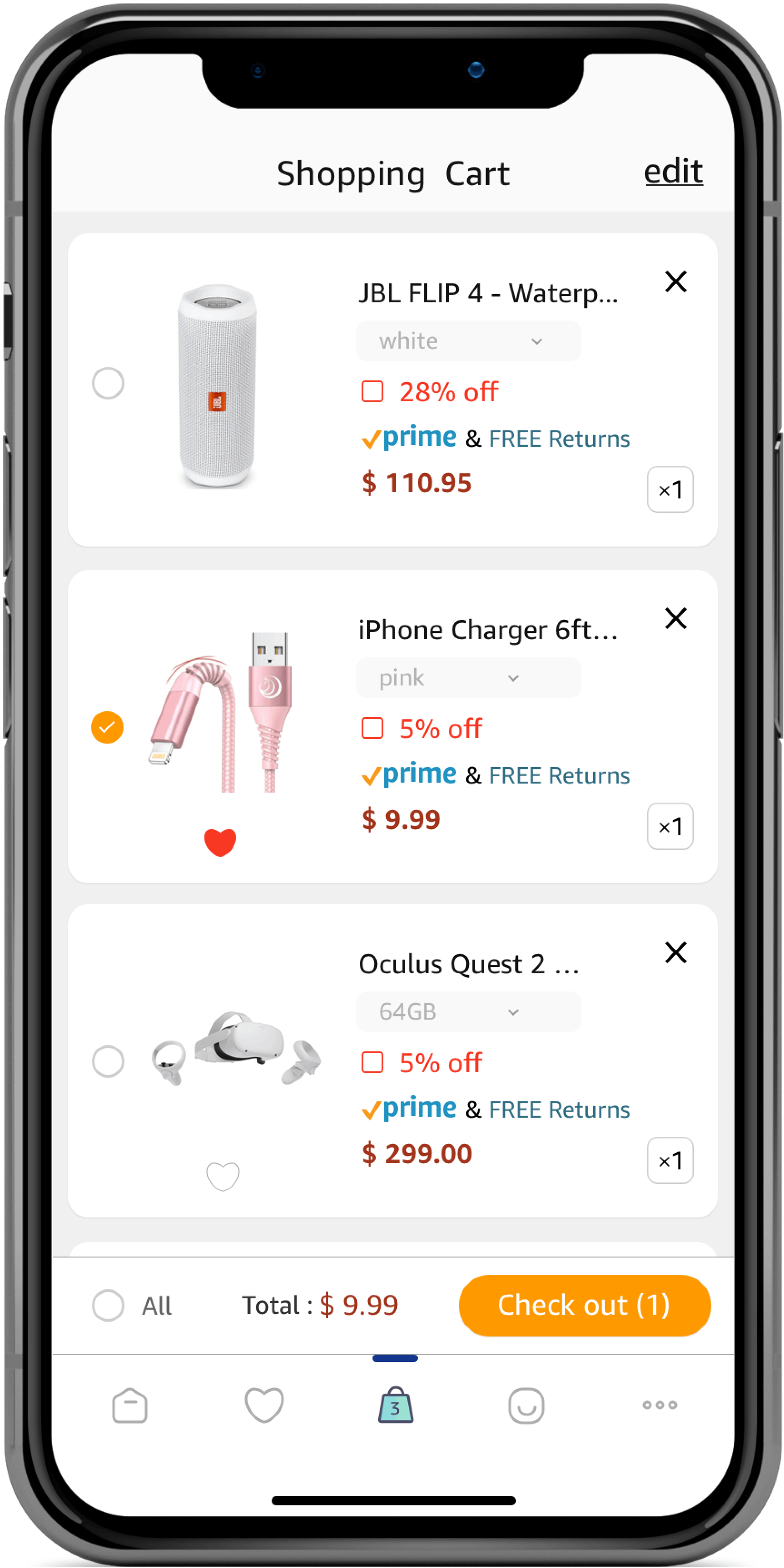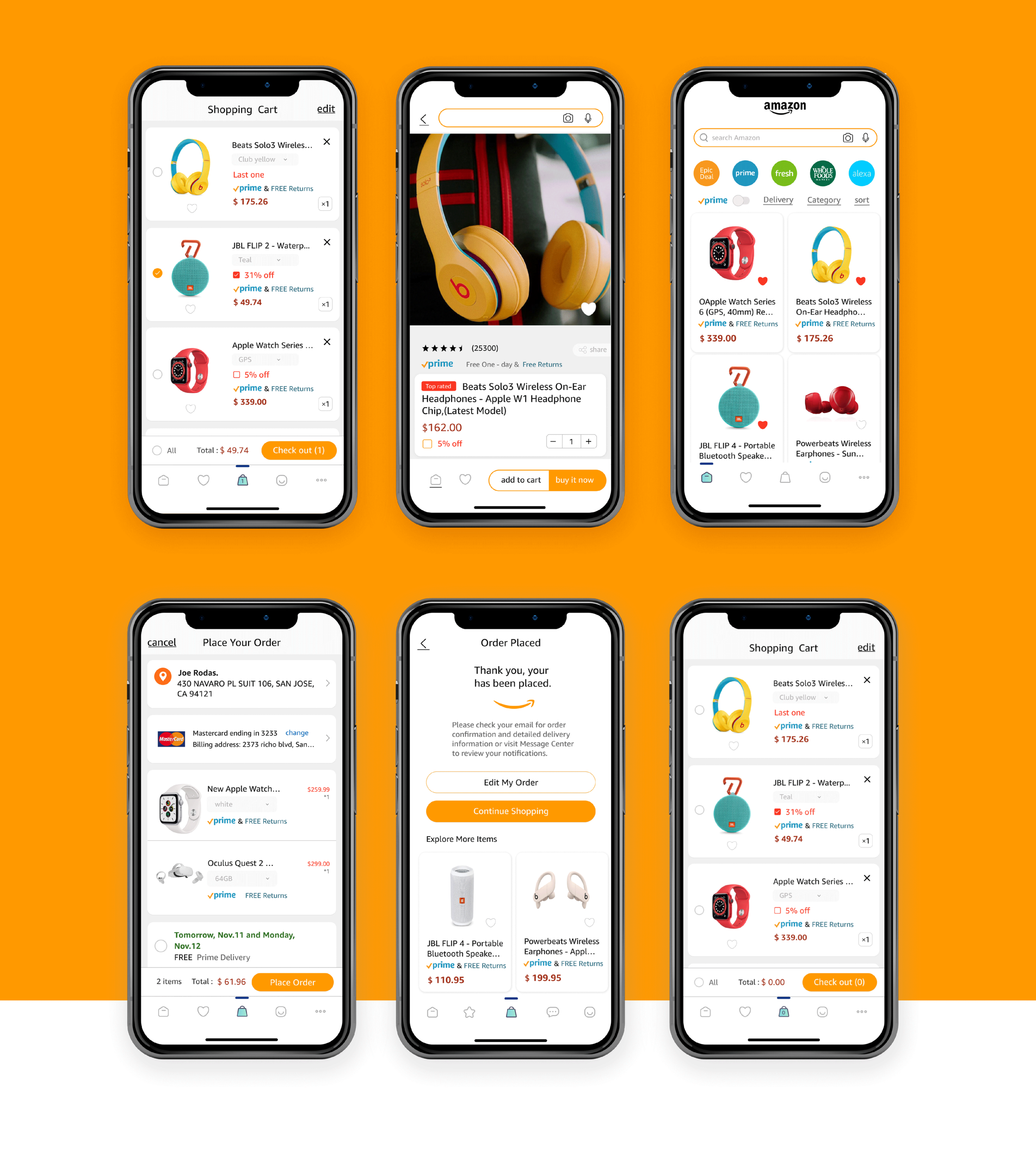Reinventing the Amazon app checkout process
Shopping Cart Flow Redesign
During the global pandemic, Amazon has proven to be essential in people's lives worldwide, dramatically increasing their business. With the increased demand, the process of how users find and check out items must go smoothly. As an Amazon user, I often feel frustrated, which motivated me to redesign part of the product that I mainly see a lot of friction. This project is self-initiated— I redesigned the end-to-end shopping checkout flow, coupon redeems, and favorites list, which resulted in a more intuitive user experience.
Project Goals
Efficiency
Make the shopping process as quick and seamless as possible
Simplicity
Provide a user friendly experience with intuitive steps from start to finish
Flexibility
Include a variety of search and checkout options tailored to customers’ shopping routines
Scope of Work
Research
• Conducted customer interviews to identify user issues.
• Reviewed the literature on Amazon customer experiences.
• From the findings of interviews and analysis of App Store reviews, I created a list of problems and solution strategies.
UX Design
Based on the research findings, I redesigned the user experience so that users can complete their purchases in a way that is most aligned with their behavioral shopping patterns.
Testing
Usability testing was conducted on all of the UX design which was used to validate the initial hypothesis.
Research & Discovery
1. Customer insight
I conducted a research survey with 20 participants and synthesized roughly 60 reviews from the App Store. The research survey was composed of online interviews of Amazon users who use the app frequently. I asked them about their habits, needs, and problems.
Saving items from my search
I can find all kinds of products on Amazon. The shopping cart is not only for checkout but also for saving items to look at later. I like to add the products which I might buy later. I don't want to delete them because finding them again is not that easy, and I can buy them quickly when they have discounts.
Comparing products
When I’m scrolling through the products and I find an item that looks good, I put it in the shopping cart for future reference. When I have all of my choices in one place, I can go through them and more easily compare the features of each product.
Using promo code
I often shop on Amazon because of discounts. I like to look for products with a coupon or promo code, but if I don’t click the promo code box on the product page, I’m unable to get my discount in the shopping cart. Ideally, I would like to have more options in the shopping cart feature to manage available deals all in one place.
2. User issues within current app
Users report having difficulties in the following areas (survey+app store reviews)
3. Key takeaways from the research
of users find the checkout process to be ineffective.
Many users would like to utilize the shopping cart feature for multiple purposes. For example, in addition to placing items in the shopping cart for immediate purchase, users also want to have a space where they can save items for price comparison and have the items accessible for future reference.
However, users have limited options in the shopping cart feature that prevent them from effectively managing their saved items. Specifically, users would like to have the option of choosing only selected items to purchase from the list in their shopping cart.
4. What do you think about the shopping cart?
The shopping cart plays an essential role in the checkout process. Often customers will add items to cart in order to easily reference them later. The reality is, the majority of your visitors will not complete their purchase within the same visit.
People don’t always shop with the intent to buy. Sometimes, you just want to see what’s out there, and adding something to your cart is the easiest way to bookmark a product while you’re still in research mode. (source: privy.com)
In a 2017 study of over 1,700 online shoppers, the Baymard Institute revealed that nearly 59% of people abandon their shopping carts because they’re just browsing and aren’t ready to make a purchase.(source: baymard.com)
It can be seen from the research that the function of the shopping cart is no longer simply 'add and checkout.' It should include more.
5. Why I revised the checkout function?
In analyzing research for checkout experiences, there are some themes that have surfaced.
The research clearly shows the complicated checkout process is one of the top reasons the users abandon their shopping cart. The checkout process must be linear (e.g., remove the back and forth between item detail and shopping cart) to guide the users to place their orders quickly. In other words, if you can improve your checkout process, you improve your profits.
A quick look at the Amazon checkout process
The following diagram represents the user's experience when using the shopping cart feature.
The checkout process becomes more complicated and time-consuming as the users want to purchase more than one item or need to check for promo codes. The users have to go back to the product page multiple times to complete the purchases.
Solutions
1. Improve the shopping cart function — split checkout
I revised the task flow in the flow chart below. The steps highlighted in orange are the areas that I was focusing on in my redesign. The new design focuses on split checkout, which I hypothesize will reduce the barriers to checkout completion and provide a better online purchase experience overall, thus increasing order value.
2. Simple End-to-End Experience
Smooth checkout process with the least possible time and effort. The hypothesis is through these revise user experience, the checkout process will be more clear and faster, thus impacting conversion rates.
Solution 1: One-click for all
The new shopping cart would include a one-click button at the bottom of the list of items labeled ‘All’. Users can select ‘All’ to purchase every item in the shopping cart.
Users will now see a one-click button to the left of each item that allows them to select only the products they wish to purchase and leave the other items in the shopping cart for future consideration.
Solution 2: Multiple ways for "my favorites (♥) " for maximum efficiency.
In the existing Amazon design, users can only favorite the items on the product detail page. It is more convenient to provide multiple ways to add items to favorites.
(♥) on the products list
Users are able to add products to favorites in the browsing experience, not only the product detail page.
(♥) on the shopping cart list
Users are able to favorite the product on the shopping cart list page directly. They don't need to go back to the product detail page.
Solution 3: My favorites list
There is the option to 'Save for Later' in the shopping cart in the existing experience. It is repetitive with the 'Your List.' Users are exposed to multiple redundant features. I have consolidated these two lists into one ‘My favorites’ list. Meanwhile, users can easily and directly find the product they marked as their favorites if they first saved the product. They will find these items with fewer steps than searching in the 'My order' section of the app.
Easier identifiable global menu items
It is easier for users to find the features or informations they want.
Solution 4: Easier to redeem coupon function
The current coupon redeems function is complex. Users don't take advantage of it in the shopping cart, even though it is valuable.
Save your money in the shopping cart
Users still have access to coupon redemption that enables them to apply discounts in the shopping cart rather than going back to the product page.
What’s next?
The COVID-19 will end. The great demand for Amazon won't. This redesign project is just beginning. I've used this time to analyze user behavior in the e-commerce base, this research, and outcomes I will be applying in my future projects.











